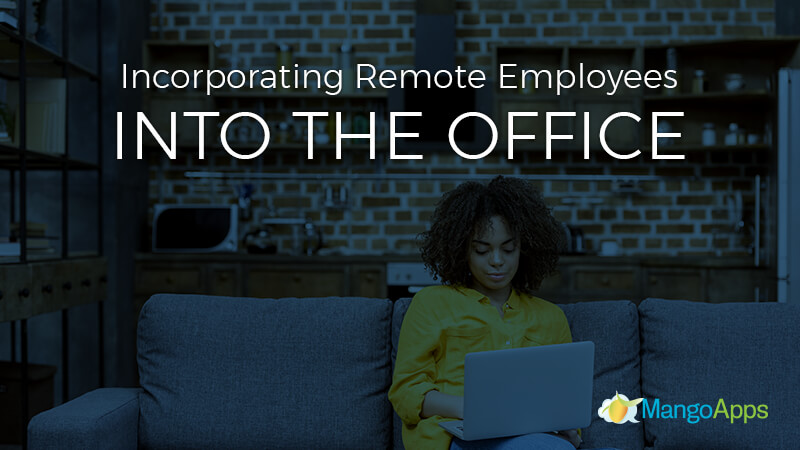Offering employees remote and work-from-home opportunities is now a business necessity. For many potential new hires, the ability to work remotely is actually a more influential factor than the starting salary. Today’s employees feel that remote work provides a better environment. A study conducted by Flexjobs found that over 76% of employees preferred to work on important projects away from the office. Remote opportunities give employees an atmosphere with less coworker interference. This contributes to a more comfortable environment, and a chance for employees to increase their work-life balance. If your organization is reluctant to provide a flexible or work-from-home option, it’s time to change. It is also worth noting that hiring remote employees can be profitable for companies too.
Here are the top three ways that remote employees can benefit your business:
Access To Top Talent
Employers always want the best workforce for their business, but in the past have been limited by geographic location. Offering remote work provides employers with access to candidates from all over the world. This greatly diversifies their options and allows them to find someone who is truly the perfect fit. Having remote employees in a business is mutually beneficial for both parties. It allows businesses to operate in office locations that work well for them while still having access to high-quality workers, and it gives employees access to jobs that they want without having to compromise their physical location.
Diversity Of Workforce
Remote work gives employers access to workers from anywhere in the world. The diversity provided by remote workers can be as broad as coworkers from another country or as narrow as a colleague from another city or state. More diversity in a work environment almost always leads to increased perspectives and original solutions. Internal diversity also allows organizations to test out international ideas in the controlled and localized area of your organization.
Increased Cost-Benefit
In order to accommodate a growing workforce, businesses need to provide a large physical office. However, real estate prices are often expensive and can be a huge deterrent for business expansion. Physical offices need to be outfitted with supplies like computers, office furniture, etc. They also accrue maintenance costs such as cleaning, utilities, office supplies and other additional expenses. Over time, even the amount of money spent on a single employee can add up to a significant expense. Incorporating remote employees into an office reduces physical expenses and saves money for businesses to add other useful programs that will benefit both traditional and remote employees.
Establishing a Successful Work Environment With Remote Employees
Researchers expect that by 2027 close to 58% of US employees will work as freelancers at least part-time. The Gig Economy, as freelancers are more widely known, will be a real game changer for employment opportunities. So, what exactly do you do to ensure that your business is successful in incorporating remote employees? Here are three tips to help you get started.
Create Effective Guidelines
Allowing employees to work away from the office should be beneficial for everyone and should not put employers in a position where commitments are vague or unclear. At the same time, employers need to establish trust with remote employees and avoid the temptation to micromanage their work or time. Finding the right balance where employees have the freedom to work and expectations are well understood is critical for remote work success. Employers need to establish remote guidelines and expectations for critical components like communication, work quality, availability and other factors. Employers should also ensure that processes are in place to deal with policy or company violations appropriately.
Use The Right Technology
While the idea of remote employees is not new, the rapid growth of technology has greatly escalated its possibilities. In order to be successful, organizations must use the right tools to communicate well and work effectively. A collaboration software tool is the perfect solution for remote success. These tools provide easy communication, seamless video call connectivity, effortless file sharing and data security, work progress monitoring, performance reporting and much more.
Build A Thriving Culture
Having an effective globally or regionally disbursed team requires a specific company culture. Employees and managers alike need to embrace a culture of responsibility, self-motivation, teamwork and collaboration. This kind of attitude could be cultivated through frequent communication, shared commitments and continuous employee engagement activities involving both remote and in-office team members. Departments like internal communications and human resources could also play an active role in these efforts. Growing a common culture where every employee values transparency, respects time and realizes responsibility is vital for achieving remote success.
MangoApps
The future of work is exciting and is now unrestricted by geographical constraints. At MangoApps, we provide a digital workplace platform that can help businesses continue to grow and embrace new work attitudes, ideas, and innovations.
Schedule a demo with us today to learn more about how MangoApps can help your business integrate and incorporate remote employees.








